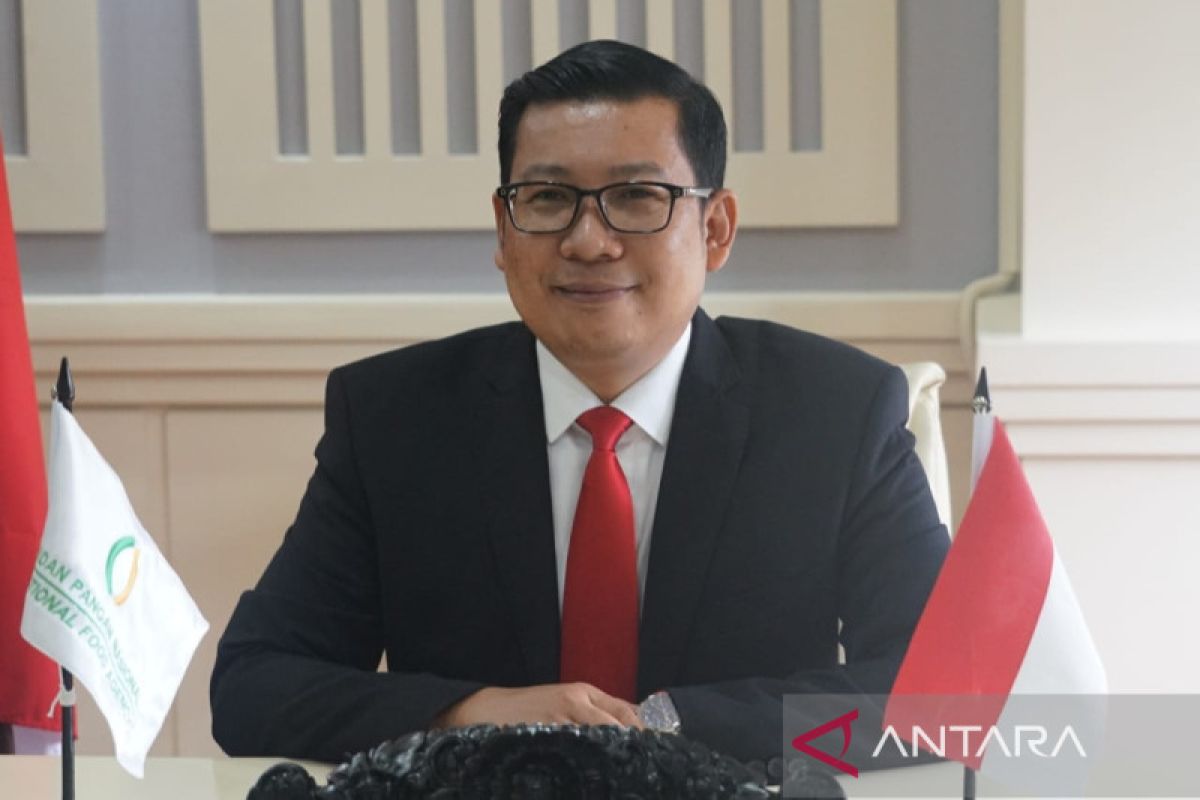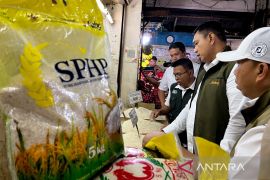The agency revealed that the collaborative strategy has been implemented to enable the State Logistics Agency (Bulog) to secure rice stocks from local producers at a new equilibrium price.
Speaking at a hearing session with members of the parliament here, Bapanas head Arief Prasetyo Adi outlined the government's strategy for dealing with surplus rice production amid rising production costs and increasing consumer prices.
Adi also highlighted Presidential Regulation No.125/2022 on government food reserves at the hearing with members of Commission IV of the House of Representatives (DPR), which oversees agriculture, forestry, fisheries, and food production.
"There is a presidential regulation on government food reserves, and, by coordinating with the Finance Ministry, the last thing that we need to do is determining the B to B," he said.
After that, an interest subsidy will be provided by the Association of State-Owned Banks (Himbara) to Bulog and state-owned food holding company ID Food, he added.
In addition to rice, the interest subsidy facility would also be provided for other staple food commodities that ID Food and others manage, he said, adding that this matter is still being finalized.
The availability of stocks of rice and other staple food commodities has become the Indonesian government's priority, Adi said.
"Until the end of 2022, for instance, we propose a budget of Rp1 trillion for Bulog to enable it to commence its assignment to secure the stocks of rice, corn, and soybean," he informed.
By getting an interest subsidy of 4.75 percent from the Finance Ministry, Bulog would be able to compete in activities of trade, he said.
According to Adi, Bapanas has also proposed a budget of Rp2 trillion for ID Food to commence its assignment to manage more staple food commodities, including shallots, garlic, curly red chilies, red bird's eye chilies, ruminant meat, chicken meat, eggs, and sugar for consumption.
The Rp2-trillion budget for ID Food could be provided through cheap loans instead of equity capital, he said.
At the hearing session, Adi also responded to a question on the government's debt of Rp5.2 trillion to Bulog saying that he has coordinated with the Finance Ministry for the debt’s repayment. "We hope we can get the Rp2-trillion budget,” he said.
The hearing session was also attended by the president directors of state-owned staple food company PT Rajawali Nusantara Indonesia and state-owned fertilizer holding firm PT Pupuk Indonesia.
Bapanas was formed on the basis of Presidential Regulation No. 66 of 2021 as part of the government's endeavors to help stabilize staple food supplies in Indonesia.
The agency monitors nine staple foods, namely rice, soybeans, eggs, corn, onions and shallots, sugar, chili, bovine meat, and poultry meat.
The issuance of Presidential Regulation No.125/2022 on government food reserves has added fish and cooking oil to the list of staple-food commodities.
Related news: NFA to improve potential of West Java's food sector
Related news: NFA promotes healthy eating to reduce food waste
Related news: World Food Day a momentum to improve food sector: NFA
Reporter: Rahmad Nasution
Editor: Sri Haryati
Copyright © ANTARA 2022












